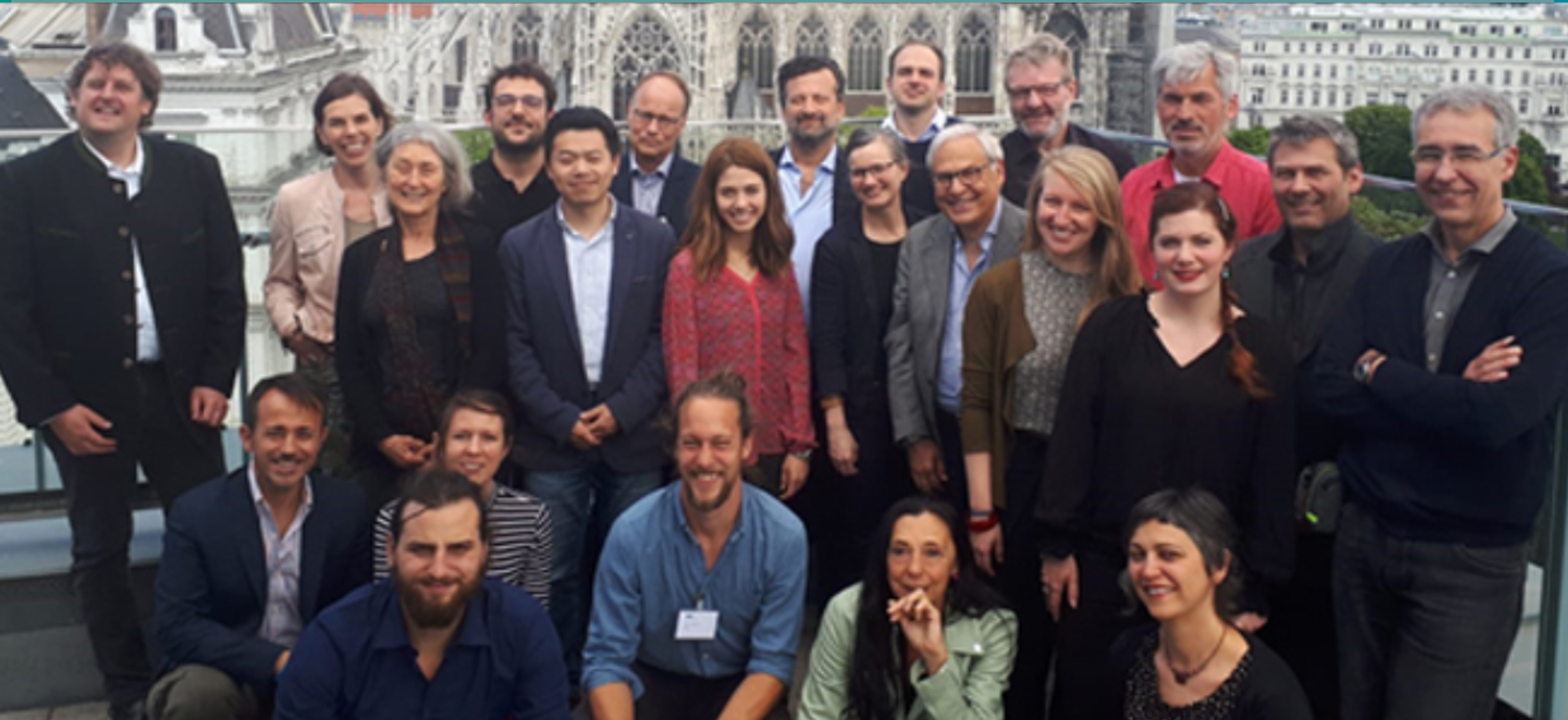Recap of first year PHUSICOS activities and future plans

The Consortium meeting in Vienna, May 9th – 10th, coincided with the one-year mark of the PHUSICOS project and highlighted the first nature-based solutions proposals at the case study sites.
The consortium meeting was co-hosted by partners from the University of Vienna (UNIVIE) and the International Institute for Applied Systems Analysis (IIASA). We had a full two days of presentations and discussions at UNIVIE’s Department of Geography and Regional Research. Discussions continued into the Thursday evening event in the Viennese vineyards just north of the city centre. Here we received a background on the geological evolution of the area and with clear skies could view an early example of nature based solutions for flood control measures for the Danube with the construction of the New Danube canal and the creation of the Danube island in the 1970s.
Case study site focus
The aim of the meeting was to provide the case study sites with the information and tools they need for moving forward in their upcoming work. Parallel coaching sessions were therefore organised with selected Work Packages and topics covered included the implementation of the Living Labs (WP3), the use of the assessment framework to define baselines (WP4), scoping studies of opportunities and barriers to NBSs (WP5), and testing the data platform (WP7).
Further to these activities, each case study site gave a poster pitch of their NBS proposals that covered a range of natural hazards such as flood, erosion, and landslides. AgenceTer, our landscape architect partner, provided some first insights on visualising the potential of NBS at the case study sites in Norway and Italy. The approach begins with reading the landscape and defining the intentions of the NBS; for example, inscribing a line in the landscape, reinforcing ecosystem services or interweaving ecological, productive and cultural identities.
Finally, much of the discussion around NBSs centred on innovation and how we can best achieve innovation. As an Innovation Action we will be revisiting this topic throughout the project as we strive for both product and process innovation (i.e. services, governance, educational, participatory processes), particularly with regard to disaster risk reduction in rural mountain landscapes.